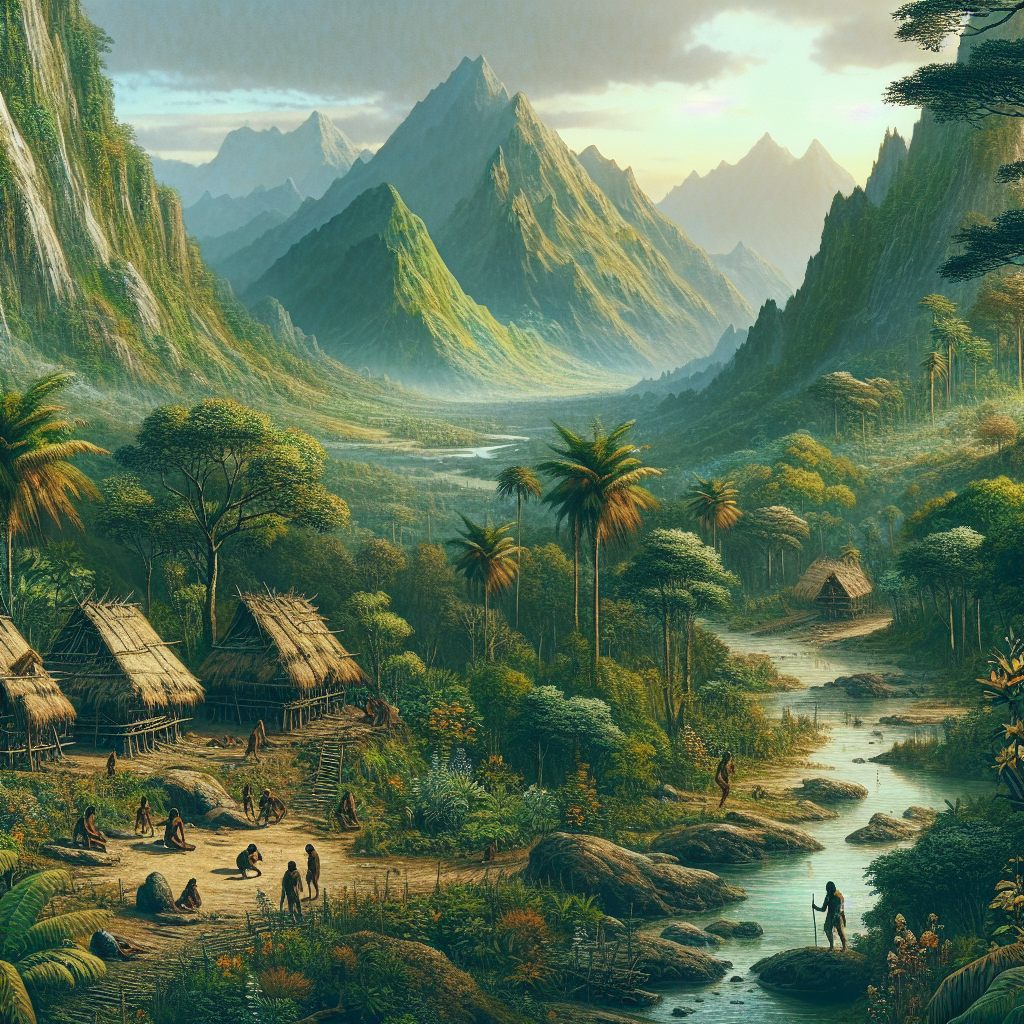The Untangling of Human Ancestry: Insights from Genetic and Archaeological Evidence
The saga of human evolution is anything but linear. The exploration of how modern humans emerged from a tangled web of ancestral lineages is one of the most riveting narratives in the field of anthropology. While much emphasis has traditionally been placed on Africa as the cradle of humanity, recent insights indicate a more intricate story that spans continents and eons. This analysis delves into the contemporary understanding of human ancestry, revealing the complexities that defy simple origin stories.
Rethinking Africa’s Centrality
For decades, the prevailing narrative positioned Africa as the central epicenter of human development, with modern humans (Homo sapiens) evolving predominantly within its vast landscapes for approximately 500,000 years. This dominant viewpoint has often overlooked the possibility that significant evolutionary changes may have transpired beyond Africa’s borders. Intriguingly, evidence suggests that while the African lineage is undeniably crucial, it coexists with a rich tapestry of developments occurring in Eurasia.
As articulated in a recent discussion, the understanding of human ancestry must expand beyond the confines of Africa. The intricate evolution of brain size and other critical traits occurred across various regions, indicating a parallel rise of human ancestors not strictly tied to one geographical location. Rather than viewing Africa as a solitary cradle of humanity, it is essential to acknowledge the complex intercontinental relationships that likely characterized our lineage.
The Intercontinental Exchange of Genes
The genetic narrative of humanity is far more nuanced than previously believed. Archaeological findings indicate that early humans spread across Eurasia, where interbreeding among various hominin species, such as Neanderthals and Denisovans, contributed to the genetic tapestry of modern humans. This blending of lineages exemplifies a dynamic gene flow that reshaped our ancestors and their descendants.
The modern understanding posits that an early human substructure extended from Africa into the Near East several hundred thousand years ago. This movement did not signify a one-way traffic but rather a complex interaction where modern humans and Neanderthals exchanged genetic material. The implications of this gene flow are profound, suggesting that the entire world, even hundreds of thousands of years ago, resembled a connected tapestry of populations rather than isolated communities.
The complexity of this gene exchange is underscored by genetic data revealing many early branches, particularly from Eurasia, challenging the simplistic notion that Africa was the exclusive birthplace of modern humans. The emerging perspective opens the door to exciting possibilities regarding the shared lineage of humans across various regions, invoking a collaborative past rather than a compartmentalized one.
The Role of Archaeology in Human Understanding
Archaeology plays a vital role in piecing together the story of human evolution. Recent discoveries challenge long-held assumptions regarding the timeline and geographical origins of significant developments in human history. The artistic and technological innovations that characterize early human societies may have emerged in a variety of locations and through exchanges between diverse groups.
One striking example is the need for further archaeological exploration in Africa. The suggestion that we require ancient DNA from various regions of Africa, dating back tens of thousands of years, rings particularly true. Such findings would illuminate the complexities of human ancestry and reveal the archaic forms contributing to the genetic makeup of contemporary populations. The dynamic interactions among different hominin species across the continent and beyond are essential to understanding how modern humans evolved.
DNA as a Window into Our Past
In the realm of genetics, DNA serves as an invaluable tool, allowing researchers to decrypt the intricate web of human ancestry. The existing genetic records reveal a striking diversity among early human populations, underscoring the collaborative nature of their evolution. With DNA preserved predominantly in Eurasia, the narrative emphasizes the need for comprehensive sampling from Africa to fully grasp the breadth of human history.
Current genetic research indicates that our lineage consists of complex interrelations among various archaic forms. The recognition that many early branches trace back to both Eurasia and Africa challenges the notion of a linear progression from one region to another. Instead, it paints a richer picture, suggesting a mosaic of influences that have shaped modern humans into who we are today.
As researchers continue to excavate ancient sites and analyze genetic data, they uncover new dimensions to our history. Each discovery sheds light on the vast interconnections that defined the human experience, paving the way for a more comprehensive understanding of our origins.
Conclusion: Embracing Complexity in Human History
The story of human evolution is one of shared heritage, continuous interaction, and complex relationships that span continents. The traditional focus on Africa as the sole cradle of humanity is giving way to a broader understanding that recognizes the intricate interplay of genetic and archaeological narratives. Emerging evidence calls for a reevaluation of our assumptions and an appreciation of the multifaceted journey that has led to the modern human experience.
The sheer complexity of human ancestry is a testament to the dynamic nature of our species. As we delve deeper into the past, the excitement of uncovering the threads that connect us all only intensifies. The journey to understand where we come from is ongoing, filled with both challenges and revelations that enrich our shared narrative.
For further insights on these fascinating topics, visit this source.
Additional Resources
In this vast expanse of time and space, the tales of our ancestors are waiting to be told, inviting us to explore the depths of our shared history with zest and curiosity.
Related News
- The Genetic Tapestry of Human Evolution: Fire, Culture, and Co-evolution
- The Mystery of Lost Civilizations: Debunking Pre-Ice Age Myths
- The Evolution of Language: Neanderthals, Modern Humans, and the Vocal Tract
- The Cultural and Genetic Mosaic of South Asia: An Insight into Ancestry and Identity
- The Intersection of Genetic Research and Neuroscience: A New Frontier in Understanding the Brain
